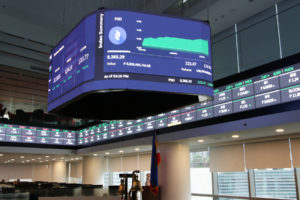Dollars sent back to the country by expatriate Filipinos hit their highest level in history last year, thanks to the growing amount of dollars remitted by land-based workers with long-term contracts, the Bangko Sentral ng Pilipinas said on Monday.
In a statement, the central bank said personal remittances from overseas workers reached $33.5 billion in 2019, 3.9-percent higher than the $32.2 billion recorded in the previous year.
For the month of December alone, personal remittances posted a year-on-year growth of 1.9 percent to register their highest monthly level at $3.2 billion.
“The sustained growth in personal remittances during the year was primarily driven by the 3.5-percent increase in remittances from land-based workers with work contracts of one year or more, which [rose] to $25.6 billion from $24.8 billion,” the central bank said.
Further, the 6.5-percent rise in personal remittances— which cover financial resources sent back home by expatriate Filipinos, regardless of purpose or source—from sea-based and land-based workers with work contracts of less than a year to $ 7.1 billion from $6.7 billion contributed to the growth in personal remittances.
In 2019, personal remittances, which boost household income and consumption, accounted for 9.3 percent and 7.8 percent of gross domestic product and gross national income, respectively.
Much of the remittances from overseas Filipinos were in the form of cash that were coursed through banks. Total cash remittances in 2019 amounted to an all-time high of $30.1 billion, 4.1-percent higher than the $28.9 billion recorded in 2018.
The growth of cash remittances was fueled by higher flows from both land- and sea-based workers amounting to $23.6 billion, an increase of 3.5 percent, and US$6.5 billion, an increase of 6.5 percent, respectively.
“Notwithstanding pockets of political uncertainties across the globe, cash remittances in 2019 remained strong,” the BSP said. “This is evident in inward remittances from Asia, the Americas and Africa, where inflows grew annually by 12.3 percent, 10.6 percent and 4.8 percent, respectively.” The growth of inflows in these regions more than made up for the 9.8-percent decline in remittances from the Middle East.
During the year, remittance inflows were sourced mainly from the United States—which accounted for the highest share to total remittances at 37.6 percent—followed by Saudi Arabia, Singapore, Japan, United Arab Emirates, the United Kingdom, Canada, Hong Kong, Germany and Kuwait.
Remittances from these countries accounted for 78.4 percent of total cash remittances during the period. INQ


